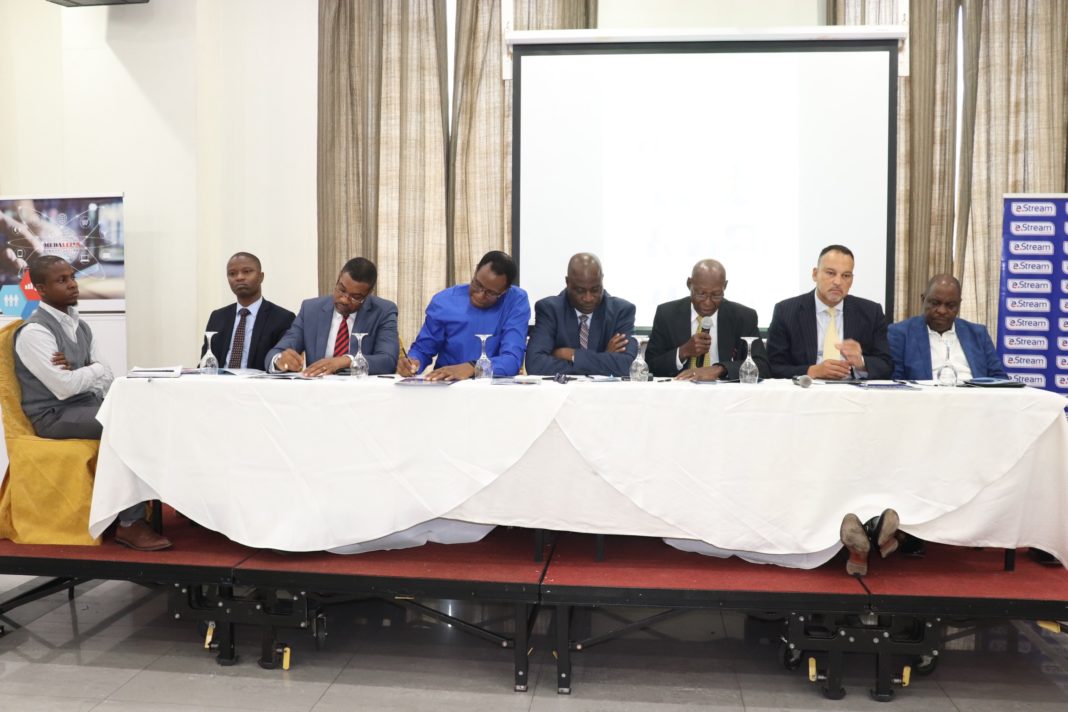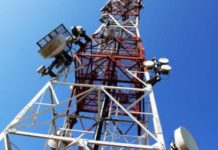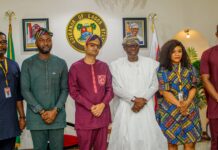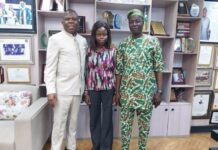Reaffirmed Commitment on Broadband Deployment
By Aaron Ukodie
The Nigerian Communications Commission says it would soon give a direction on Nigeria’s approach to the adoption of 5G technology in line with global trends.
The regulator spoke at the 10the Edition of the eWorld Forum, which held yesterday in Laos. The position of the NCC was made known amidst divergent views from industry players on the question of 5G technology adoption.
NCC Executive Vice Chairman Representative, Engineer Oluwatoyin Asaju, Deputy Director, Spectrum Administration, said Nigeria cannot wait behind in the adoption of the technology until existing network operators acquire the capacity to deploy nationwide. “They can start gradually”, as in the case of 4G which has not been deployed across the country.
He said the NCC has made available for 5G and it was currently consulting with the industry on the pathway to the adoption of 5G, adding that the regulator would soon be attending a meeting in Egypt to discuss the 5G question and once it comes back from that meeting it would announce a way forward for Nigeria in adopting the technology.
Association of Licensed Telecom Operators of Nigeria (ALTON) Gbenga Adebayo agrees with the NCC position. “I am an advocate of 5G. We need to talk about 5G now”, he says.
“We need 5G, because we cannot stay behind, but we (also) need to get what we already have to those who do not have yet”, added Aremu Olajide, Managing Director of XperTeam.
But a somewhat divergent view came from the Managing Director of eStream Networks, Mr Muyiwa Ogungboye who argued that Nigeria needs to take a little slow in adoption of 5G, because, according to him the country was yet to deploy 4G wide enough to benefit therefrom not to talk of 5G.
The template of the NCC, which provides a gradual adoption of 5G networks is in line with the prevailing global practice. Several network operators in United States and Europe are begging with a gradual deployment of 5G around defined areas and communities.
The NCC revelation on the 5G quest came with a reaffirmed
commitment to bridge the gap between existing and planned fibre infrastructure
to increase broadband penetration in the country.
The NCC said that they have set up strategy to ensure access to pervasive Broadband through an Open Access Model in line with National Broadband Plan.
He noted that this is in line with the commission’s continued doggedness in ensuring that the lacuna between the existing and planned fibre infrastructure in Nigeria is narrowed.
He added that the deployment of Optic Fibre transmission network was adopted in the “Open Access Model” so as to bridge the current digital gap and deliver fast and reliable broadband services to households and businesses.

From left Ajibole Olude, ATCON Executive Secretary, Mr Muyiwa Ogungboye, eStream Network Managing Director, Olajide Aremu, MD, XpertTeam, NCC Asaju, Aaron Ukodie, Publisher eWorldNews, Tunde Coker, Rack Centre MD, Gbriel Odunsi, Paradigm Initiative and Gbolahan Awonuga, ALTON Executive Secretary
He stated that adequate broadband has been globally acknowledged as the foundation for transformation to a knowledge-based economy.
According to him, “The World Bank has found that a 10 % increase in broadband penetration in developing countries results in a commensurable increase of 1.38% in GDP.
“It has also been proven that for every 10% increase in Broadband penetration, a commensurate increase in employment of 2-3% is achieved. Productivity also increases to between 5-10% with a 10% increase in BB penetration.
“So it is almost impossible to equate any other modern technological tool with Broadband, because of its inherent potential to address issues relating to sustainable development and simultaneously facilitate socio-economic development, while instigating transformative change in all the sectors of the economy.”
Danbatta stated that the establishment of Broadband Implementation & Monitoring Committee (BIMC) was to drive the broadband infrastructure licensing and deployment.
He said that the licensing of the six Infracos was to ensure that they provide IP fiber Optic capacity, to all the 774 LGAs of the federation on an open access, price regulated basis, with a 10 Gbps Point of Access (PoA) capacity in each local government of the federation.
The Infraco licensees are to provide IP fiber Optic capacity, to all the 774 LGAs of the federation on an open access, price regulated basis, with a 10 Gbps Point of Access (PoA) capacity in each local government of the federation. The project is for a four- year period with the negotiated subsidies to be paid to the Infraco licensees at the attainment of agreed and verified milestones.
The Commission has also continued to make available wireless Spectrum resources to the operators, as well as creating enabling environment and level playing field through various regulatory instruments, for the growth and development of the industry, and the overall impact on the socio-economic well-being of our nation. Some of these resources cover capacity and coverage spectrum in the 2.6 GHz band and re-farming of part of the 1800 MHz and re-planning of the 800 MHz bands.
Other resources made available by the NCC, are in the 70/80 GHz bands and 5.4 GHz bands, with plans at advanced stage to open up the 60 GHz band for unlicensed use.
He revealed that broadband can reduce poverty and inequality, help ensure access to health and education, help to mitigate climate change, promote peace and international cooperation, and ensure sustainable development in the decades to come.
He called on government at all levels to curtail the issues of multiple taxation and regulation right of way issues as well as timely and simplified approval processes for site acquisition and harmonized right of way charges in the industry.
This according to him, will enhance the spread of Broadband to the unserved and underserved areas of Nigeria, because if you build an efficient Broadband network everything else will follow.













